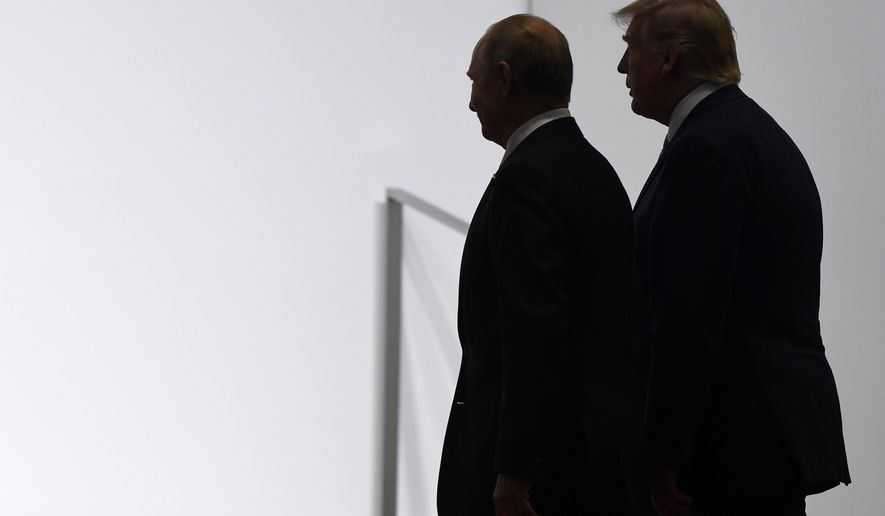WASHINGTON (AP) - An odd new front in the U.S.-Russian rivalry has emerged as a Russian military cargo plane bearing a load of urgently needed medical supplies landed this week at New York’s JFK airport.
Russia cast it as a magnanimous aid contribution to a struggling country in need – its old Cold War rival. The State Department insisted that Wednesday’s shipment was a mere commercial transaction: that the US had paid Russia for the supplies it needed and they were certainly not a gift.
Yet President Donald Trump on Thursday referred to the shipment as “aid,” and said the United States had accepted “a very nice offer” from Russian President Vladimir Putin.
Hours later, the State Department clarified its initial statement, saying the supplies were purchased - but at a discount. But even then there was a twist: The discount came because the supplies had been channeled through the Russian Direct Investment Fund - a government sovereign wealth fund that has been subject to U.S. sanctions for Ukraine-related activities since 2015.
Amid the contradictory claims and vague explanations, the details of the shipment - its exact contents and cost - were not immediately clear, although a case could be made that both sides’ versions have an element of truth.
Russia’s Foreign Ministry says the supplies, which were turned over to the U.S. Federal Emergency Management Agency, are part of humanitarian assistance shipments Moscow is sending to countries in need. Russia has touted the shipment on social media as evidence of its generosity in a time of global crisis with the hashtag “#RussiaHelps.”
It said Thursday that half of the supplies delivered to New York, including ventilators and personal protective gear, was paid for by the Russian Direct Investment Fund.
Despite that, Trump welcomed the shipment, which followed a phone call he had with Putin this week. “We’re accepting it,” Trump said. “It was a very nice offer from President Putin. I spoke to him the other night, as I told you. And they had access to medical equipment, things, and I’ll take it. I’ll take it. I think it’s very nice.”
Shortly after the supplies arrived, however, the State Department had stressed that the shipment was bought and paid for. The department has been pushing a message that despite domestic needs, the U.S. remains committed to helping other nations. It announced last week that the U.S. is providing $274 million in coronavirus assistance to 64 countries.
Secretary of State Mike Pompeo reiterated that message in a tweet. “We have to work together to defeat #COVID19,” he said. “This is why the U.S. agreed to purchase urgently needed personal protective equipment from #Russia to help #FEMA respond in New York City. This is a time to work together to overcome a common enemy that threatens the lives of all.”
After Trump’s comments on Thursday, however, the State Department allowed that the Russian medical supplies had been purchased at a discount. “The United States is purchasing the supplies and equipment outright, as with deliveries from other countries,” it said. “We appreciate Russia selling these items to us below market value.”
That clarification suggested that at least some of the supplies were indeed provided as aid, and from a Russian government entity under U.S. sanctions. The department acknowledged the role of the Russian Direct Investment Fund in the shipment, but said the sanctions against it “would not apply to transactions for the provision of medical equipment and supplies.”
Treasury added RDIF’s management company to its sanctions list in 2015 because of its links to the Russian bank Vnesheconombank, which has been active in Crimea, the Ukrainian territory that Russia annexed in 2014. The U.S. and most other countries still consider the Black Sea peninsula to be part of Ukraine.
Treasury warned Americans about evasive practices that companies linked to the fund might undertake related to Ukraine. Treasury’s Office of Foreign Assets Control said the evasive practices included “the omission or obfuscation of references to Crimea and locations within Crimea in documentation underlying transactions involving U.S. persons or the United States.” Americans or those with strong U.S. links have held senior positions at the fund.




Please read our comment policy before commenting.